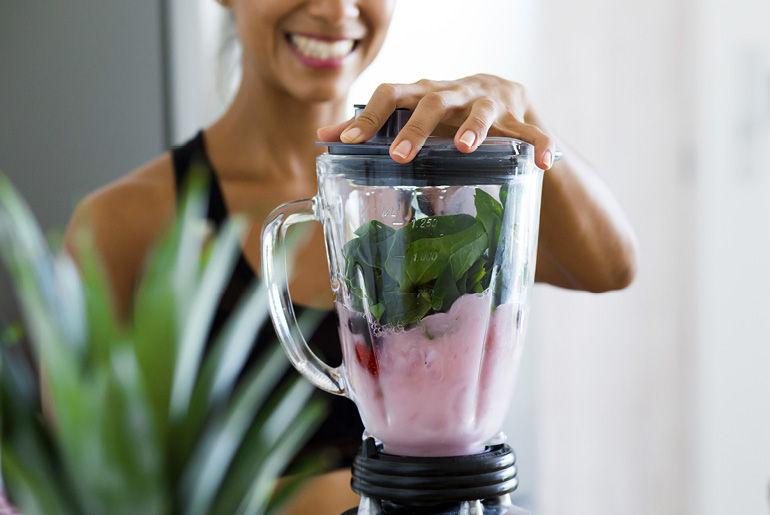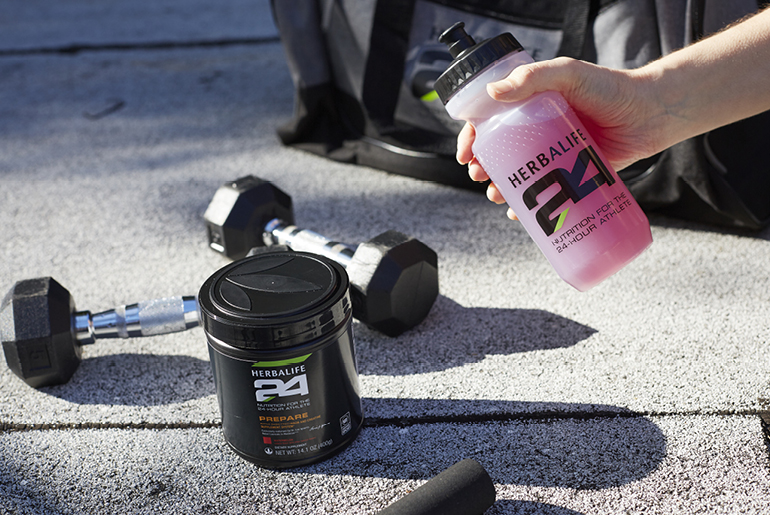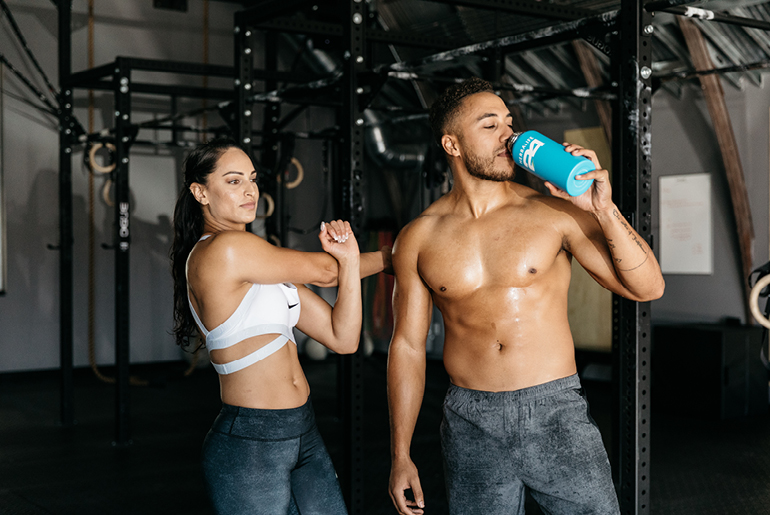Common Protein Myths - Separating Fact from Fiction!

Myth 1. Eating Too Much Protein is Bad For You
Usually this is said in the context of high protein diets, with little regard for nutrition. While protein has many important benefits to the body, you certainly don’t want to eat so much that is leaves little room for other healthy foods in your diet. It is important to balance your protein intake with other macros like carbs and fats.
You also want to choose nutrient dense proteins, so you don’t pick up unwanted calories or fats along the way. A lot of people follow popular diets, but they forget all about nutrient density. Fatty meats like sausage or bacon, for example, may provide some protein, but they can also add a lot of extra calories and they are loaded with saturated fat.
It’s better to have fish, poultry, lean meats and plant proteins to keep your calories and fat intake in check. In the same way, if you eat a lot more protein than you need, but you are not getting much exercise, you can actually gain body fat. It’s not just the extra fats and sugars that you eat, that make you gain weight. Extra calories from any source, even protein, will get stored as fat if you don’t burn them off.
Link: https://www.herbalife.com.au/articles/alternative-plant-proteins-for-personalised-nutrition/
Myth 2. Eating More Protein Guarantees You Will Build More Muscle
While it is true you need adequate protein in order to build muscle mass, simply eating more protein alone won’t cause you develop more muscles. You need to work out those muscles with resistance exercise. The process of muscle repair and growth occurs as the body recovers from exercise. Taking in about 20 g of high quality protein after a strength training workout is one of the best ways to promote muscle protein synthesis. A lot of people take protein shakes after their workout as it’s so convenient.
Link to H24 Achieve Protein Bar video : https://www.herbalife.com.au/about-us/customer-support-tools/herbalife24/
Myth 3. Protein Powders are Not Healthy
This myth may stem from the idea that protein rich foods provide other nutrients that protein powders don’t. This isn’t really a fair comparison because protein powders aren’t meant to completely replace protein-rich healthy food, but they can be used to supplement your intake to help you meet your needs and goals. Protein powders are concentrated sources of protein and are produced from a variety of sources – both plant and animal. Many provide somewhere in between 20-30 g of protein per serving and are an easy way to incorporate high quality protein into your diet. Protein powders also make it easy to track your intake. So, while it’s important to include other sources of protein in the diet, such as fish, poultry, lean meat and plant protein like beans, lentils and tofu, protein powders are a convenient way to add protein to foods like smoothies or when mixed into a recovery shake after a workout.
Breakout: Protein powders are meant to supplement your intake and help you meet your nutritional goals.
Fruits and vegetables can be added to your protein shakes, and you can also add protein powders to lots of other foods such as cereals, soups or baked goods.
Myth 4. Cooking and heating destroy protein
The truth is you can’t cook the protein out of food. It doesn’t matter if that food is an egg, a piece of chicken or some protein powder that you bake into a muffin. When proteins are cooked, they do change, but the protein isn’t destroyed. When you cook an egg, the white becomes opaque then solid, but the cooked egg has the same amount of protein as the raw egg. So, if you are worried about destroying protein when you bake with your favourite protein powder, just know that you are getting the same amount of protein as if you tossed that powder into a shake.
Myth 5. Older adults do not need as much protein as younger adults
More and more research is telling us that protein needs actually increase as you get older, and that older adults may need up to 1.5 times the recommended dietary allowance for protein. Starting at about the age of 40, adults naturally begin to lose some muscle mass. More importantly as we age, our bodies are a bit less efficient at utilising the protein that we eat. It’s important that older adults consume enough protein to encourage muscle protein synthesis, and that they engage in regular resistance training.
Myth 6. Protein is bad for your kidneys
The fact is, unless someone has impaired kidney function, a high protein diet does not cause damage. One of the jobs of the kidneys is to filter out unwanted waste products from the body, including the nitrogen that comes from the breakdown of dietary protein. A healthy kidney does a perfectly good job of getting rid of that extra nitrogen that results from the proteins that you eat. Remember to eat the amounts that is right for you. Overeating any kind of substance does your body no favours.
Myth 7. You can’t get enough protein on a vegetarian or vegan diet
The image of body builders consuming mounds of steak , egg and chicken has been around for so long, it has many people believing you can’t build muscle if you don’t eat animal protein. But there are plenty of vegetarian athletes who can prove otherwise. A well-planned vegetarian or vegan diet can provide all the essential amino acids the body needs to promote muscle development. But well-planned is the key. Since not all plant proteins are complete, meaning they don’t contain all nine essential amino acids, it’s important to mix up your proteins to get the full complement. That’s why plant-based protein shakes, such as those made with soy, can be so convenient and they offer really nutritious ways to increase your protein intake, especially if you are on a vegetarian or vegan diet.
As long as you provide your body with a wide variety of plant proteins, you can provide your body with the protein building blocks it needs.
Recipe link: https://www.herbalife.com.au/recipes/tri-blend-boost/
By Susan Bowerman
M.S., R.D., CSSD, CSOWM, FAND – Sr. Director, Worldwide Nutrition Education and Training
By Michelle Ricker
Registered Dietician and Herbalife Nutrition’s Worldwide Health Education and Training Director
Always read the label. Use only as directed.





